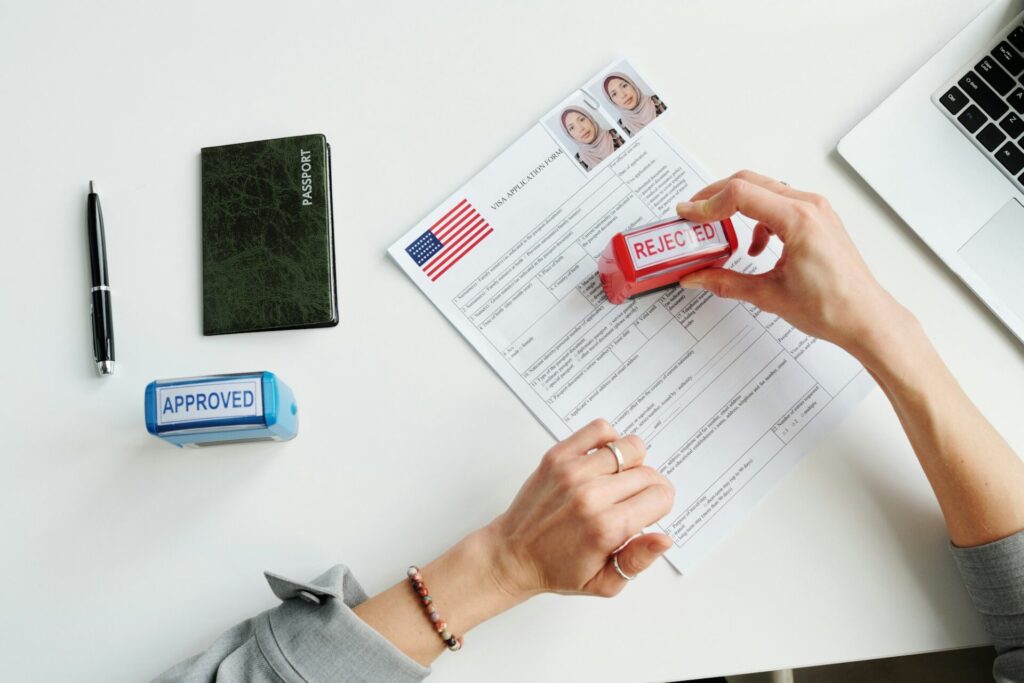Waiver of Ineligibility: Overcoming Barriers to U.S. Visa Approval

Waiver of ineligibility in the context of United States immigration is a complex and intricate topic that requires careful consideration. When an individual seeks to enter the United States, either for a visit, to work, study, or live permanently, they must be deemed admissible under U.S. immigration law. However, there are instances where individuals may be found ineligible for a visa or admission into the United States due to various reasons such as health-related issues, criminal history, security concerns, or previous immigration violations. In such cases, a waiver of ineligibility might be the solution to overcome these barriers.
The concept of a waiver of ineligibility is essentially a form of legal forgiveness offered by the United States to individuals who are otherwise inadmissible. This process allows them to enter or remain in the U.S. despite their inadmissibility. The application for a waiver is a critical step for many individuals and families who wish to realize their dreams of living, working, or studying in the United States. The eligibility for a waiver and the likelihood of its approval depend on the specific grounds of inadmissibility and individual circumstances.
One common ground for inadmissibility is the presence of a criminal record. Individuals who have committed certain crimes may be deemed inadmissible, but in some cases, they can apply for a waiver. The Department of Homeland Security (DHS) and the U.S. Citizenship and Immigration Services (USCIS) consider factors such as the nature and severity of the crime, the amount of time that has passed since the offense, and the applicant’s current character and conduct. A key aspect in these cases is demonstrating that the individual poses no threat to public safety and has been rehabilitated.
Health-related grounds of ineligibility are another area where waivers may be applicable. Certain communicable diseases, lack of required vaccinations, or mental health conditions with associated harmful behavior can render someone inadmissible. However, waivers can be granted if the individual seeks treatment or if public health concerns are adequately addressed. This often involves comprehensive medical evaluations and assurances that the individual will not pose a public health risk in the United States.
In cases of immigration violations, such as previous overstays, unlawful presence, or deportation, obtaining a waiver can be particularly challenging. The applicant must typically demonstrate that their inadmissibility would cause extreme hardship to a U.S. citizen or lawful permanent resident family member. This concept of extreme hardship is rigorously evaluated and is not simply based on the emotional distress of separation. It requires substantial evidence showing that the hardship would be significantly greater than what would normally be expected from family separation due to visa denial.
The process of applying for a waiver of ineligibility is often detailed and requires detailed documentation. Each case is unique, and the application must be tailored to address the specific grounds of inadmissibility and the individual circumstances. This often involves legal arguments, supporting documents, and sometimes expert opinions or testimonials. The role of immigration attorneys in this process is crucial as they guide applicants through the complex legal landscape, ensuring that their case is presented in the most persuasive manner.
It is also important to understand that the approval of a waiver is not guaranteed. The decision lies with the immigration authorities, and it is a discretionary process. Factors such as the severity of the grounds of ineligibility, the applicant’s overall immigration history, and their current ties to the United States are all taken into consideration. The decision-making process also reflects the current immigration policies and priorities, which can change over time.
For those whose waivers are approved, the relief is significant. It allows them to move forward with their plans to visit, work, or live in the United States. However, it is crucial to note that a waiver does not change one’s immigration status. It merely forgives the specific grounds of ineligibility, allowing the individual to proceed with their visa application or other immigration processes.
The impact of a waiver extends beyond the individual applicant. It affects families, employers, and educational institutions. For families, it can mean reunification or the ability to stay together in the United States. For employers, it can mean the ability to hire a valued employee, and for educational institutions, the opportunity to host international students or scholars.
In conclusion, the waiver of ineligibility is a vital aspect of U.S. immigration law, providing a pathway for individuals who are otherwise inadmissible to enter or remain in the United States. It is a complex process that requires a thorough understanding of the law, meticulous preparation of the application, and often, the expertise of an immigration attorney. While the outcome is not guaranteed, the successful acquisition of a waiver can have life-changing implications for individuals and their families, contributing to the rich tapestry of the United States as a nation of immigrants.
